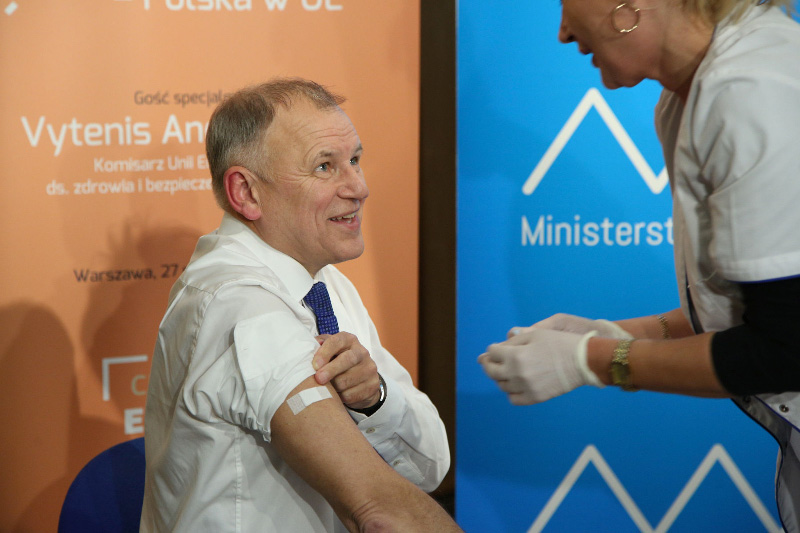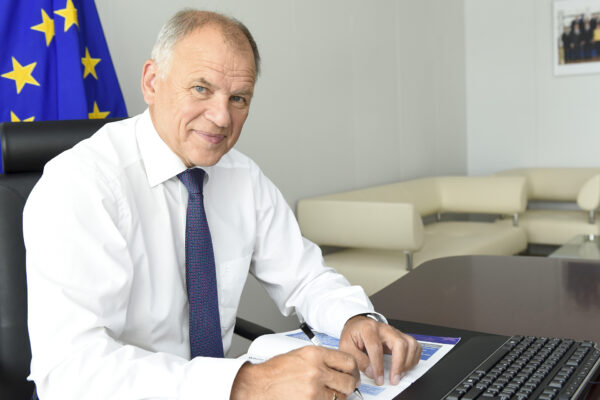Dr Vytenis Andriukaitis has seen immunisation from all sides. He is a doctor, a former national health minister, an ex-EU Commissioner responsible for health, and now a Special Envoy for the WHO Regional Office for Europe.

We interviewed him five years ago as he prepared to end his five-year term in the Commission. At the time, he stressed his commitment to championing vaccination, saying: ‘I will always be a vaccine advocate’. ‘Vaccination is part of my life,’ he said. ‘For me, it’s absolutely crucial to fight for vaccines, and to explain that vaccination is a safe and cost-effective way to protect people’s lives.’
He also called for harmonised vaccine schedules in the EU ‒ a proposition not every national health minister is enthusiastic about, to put it mildly. That was before the pandemic, at a time when there was less momentum behind life-course immunisation.
Now, ahead of European Parliament elections and a new European Commission, Dr Andriukaitis is the first guest on a new podcast series organised by the Coalition for Life-Course Immunisation. His passion for preventative health has only grown stronger.
Key points:
- Immunisation should be viewed as an investment rather than a cost
- People of all ages everywhere should have access to vaccination
- COVID-19 continues to be a problem, including the impact of long-COVID
- Real-time data is needed to inform decisions by policymakers and citizens
- The pandemic showed the value of European cooperation, but some are ignoring this lesson
It may be five years since his time in Brussels ended, but Dr Andriukaitis is not one for retirement: most recently, he is a co-author of the European Health Union initiative manifesto ‒ which calls for ‘more Europe’ in health policy. The manifesto points to the experience of COVID-19, along with EU successes in areas such as rare diseases, as examples of what is possible through cooperation.
It is not without controversy, particularly in proposing updates to the Lisbon Treaty which provides a legal basis for the EU. The changes would give a greater role to European bodies in tackling health issues. As health policy is currently run by regional and national governments, some are reluctant to share power; others fear that opening a debate on the Treaty would lead to lengthy and fractious legal wrangling. Dr Andriukaitis thinks this is short-sighted.
In a wide-ranging interview, Dr Andriukaitis calls for greater political leadership from European, national and regional decision-makers, including finance ministers who have the power to ring-fence funding for preventative health. He also urges greater use of data and digital technologies to ensure health authorities ‒ and citizens ‒ have the information they need to make informed decisions.
Despite the challenges facing Europe at this time of transition and multiple crises, he remains a natural optimist: ‘I always follow the rule that new challenges create new opportunities,’ he said. ‘We have a perma-crisis now ‒ climate, air pollution, migration, Ukraine, Gaza. Solidarity is the only way to solve these problems ‒ and health is in the middle of all of them so we must keep it high on the political agenda. It’s simple: prevention is better than cure.’





